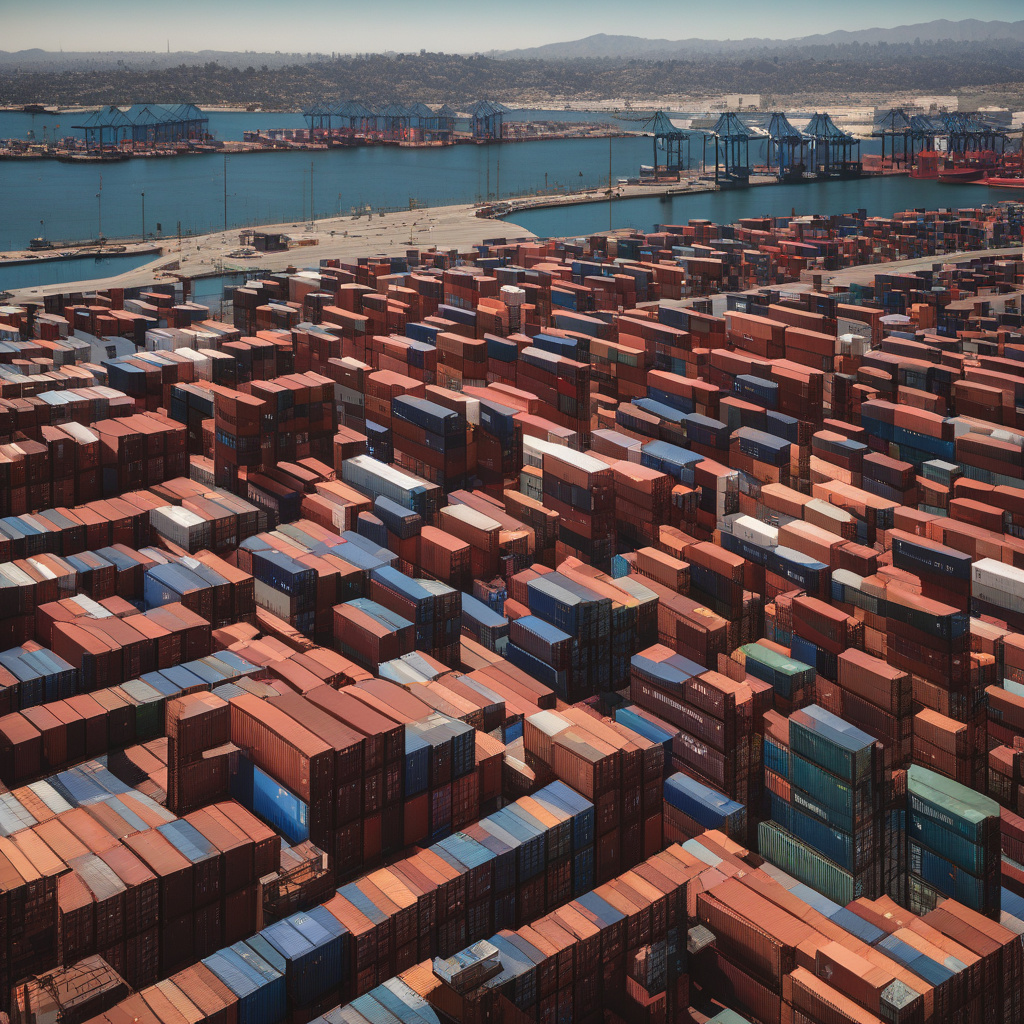Port of LA Imports Plummet 19% in May Amidst Tariff Turmoil
In the realm of global trade, the Port of Los Angeles stands as a bustling gateway through which goods flow in and out of the United States. However, recent statistics have revealed a significant downturn in import activity, with a staggering 19% drop recorded in the month of May. This abrupt decline has sent ripples of concern throughout the business community, particularly impacting importers and retailers with strong ties to China. The root cause of this downturn? The prevailing uncertainty surrounding President Trump’s trade war policies.
The imposition of tariffs on Chinese goods has been a central pillar of President Trump’s economic strategy. Intended to bolster domestic industries and correct trade imbalances, these tariffs have had far-reaching implications for businesses that rely heavily on imports. The escalating tensions between the US and China have created an atmosphere of unpredictability, making it challenging for companies to make informed decisions regarding their supply chains and pricing strategies.
One of the most tangible effects of this trade war has been the sharp decline in import volumes at major ports such as the Port of Los Angeles. As importers and retailers grapple with the repercussions of increased tariffs, many have been forced to reevaluate their sourcing strategies and seek alternative solutions to mitigate the impact on their bottom line. The 19% drop in imports at the Port of LA serves as a stark reminder of the real-world consequences of protectionist trade policies.
The ripple effects of this decline in port activity are being felt across various sectors of the economy. From manufacturers facing higher production costs due to increased tariffs on raw materials to retailers navigating uncertain consumer demand, the repercussions of the trade war are multifaceted. The recent downturn in imports serves as a sobering reminder of the interconnectedness of the global economy and the ripple effects that policy decisions can have on businesses of all sizes.
Despite the challenges posed by the current trade environment, there are glimmers of hope on the horizon. Many businesses are actively exploring diversification strategies to reduce their reliance on Chinese imports and mitigate the impact of tariffs. This shift towards a more diversified supply chain not only enhances resilience but also opens up new opportunities for businesses to explore emerging markets and streamline their operations.
As we navigate these uncertain times, adaptability and foresight will be key for businesses looking to weather the storm of trade tensions. By staying informed, proactively assessing risks, and remaining agile in their operations, companies can position themselves to not only survive but thrive in the face of adversity. The road ahead may be fraught with challenges, but with strategic planning and a proactive mindset, businesses can navigate the complexities of the current trade landscape and emerge stronger on the other side.
In conclusion, the 19% drop in imports at the Port of Los Angeles serves as a stark reminder of the disruptive impact of tariffs and trade wars on businesses across the US. As importers and retailers continue to navigate these choppy waters, resilience, adaptability, and strategic foresight will be critical in charting a course towards sustainable growth and success in an ever-evolving global marketplace.
Port of LA, Imports, Tariffs, US Businesses, Trade War












